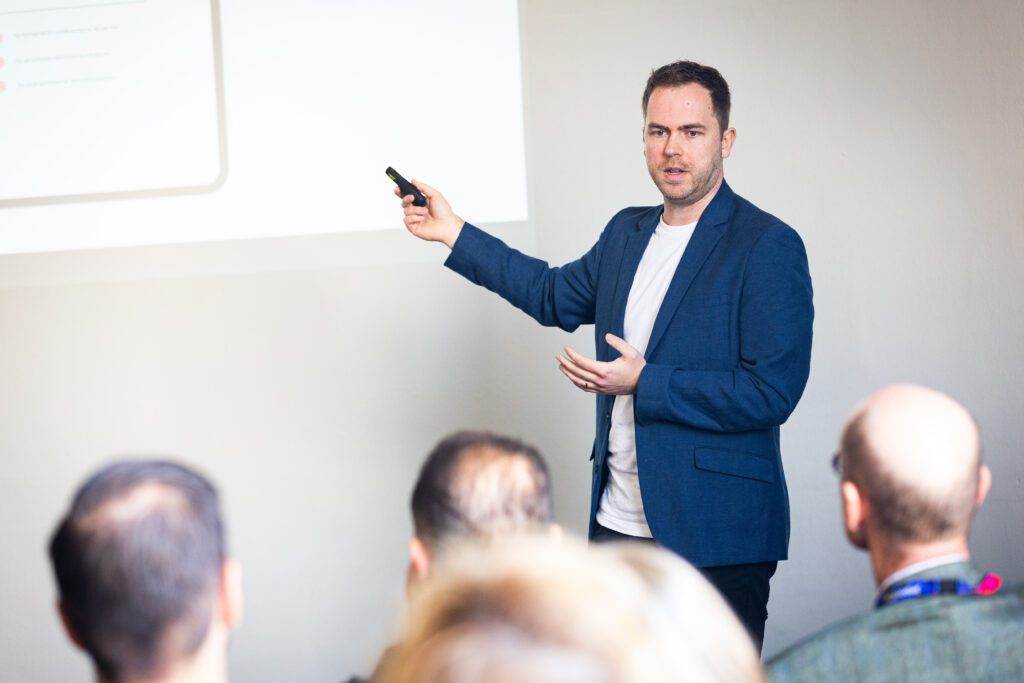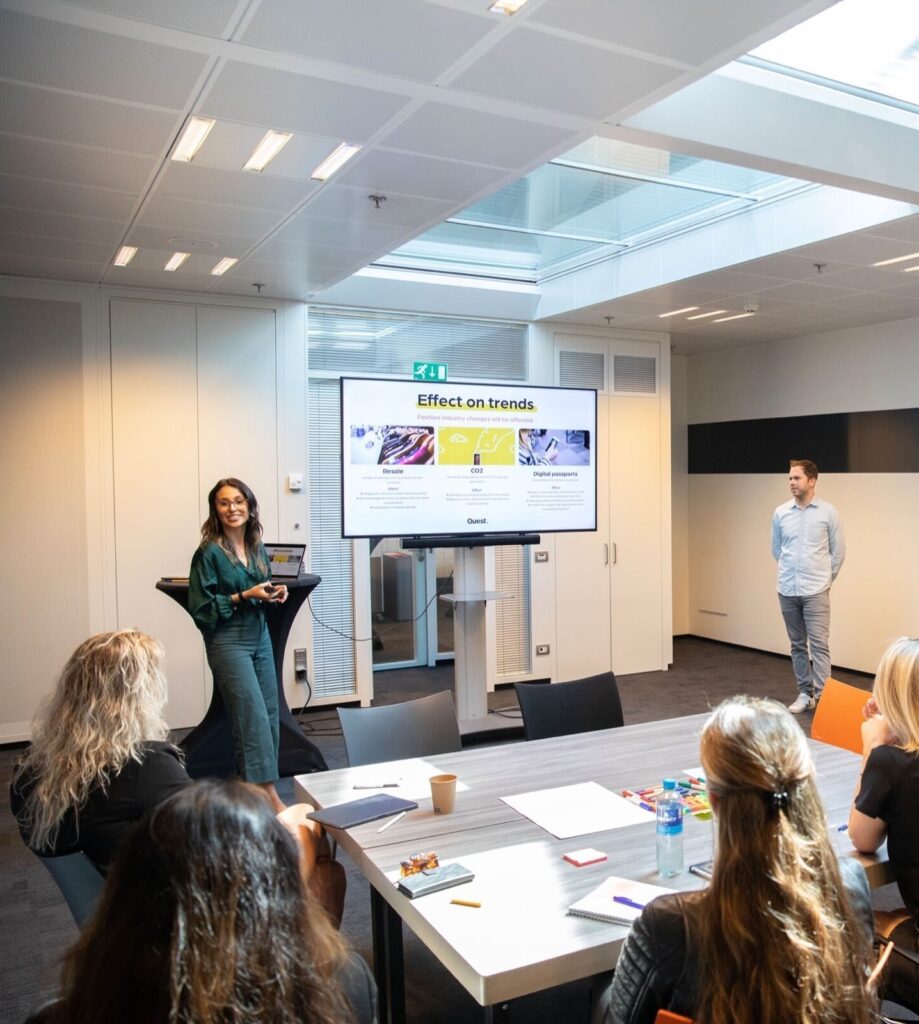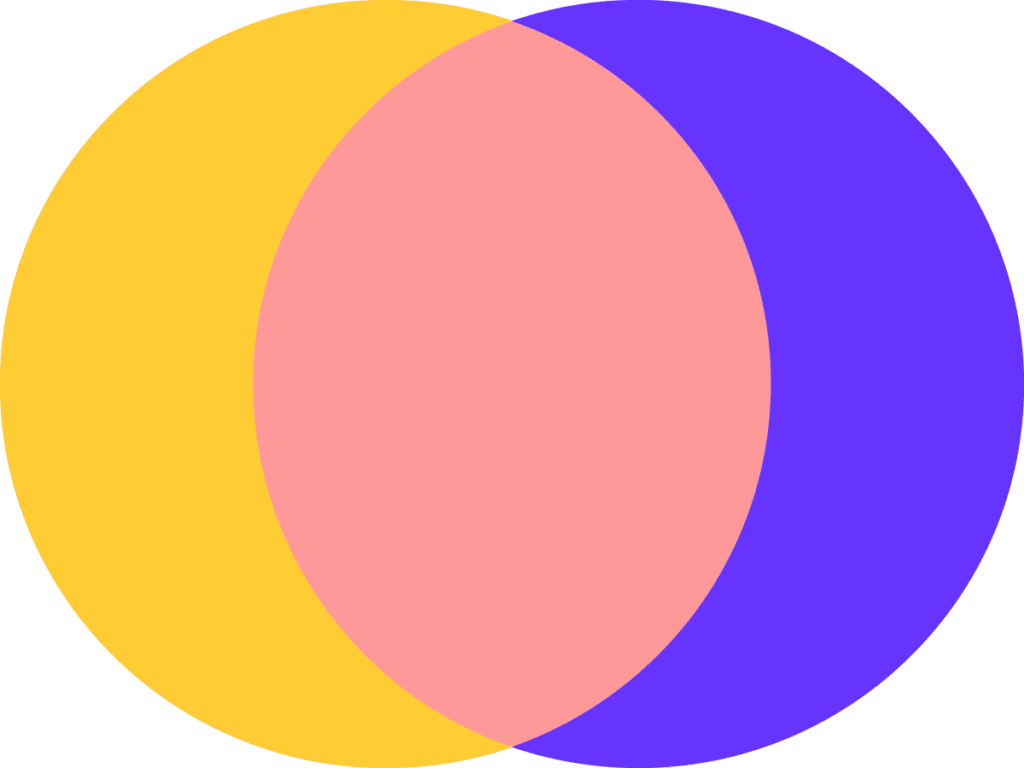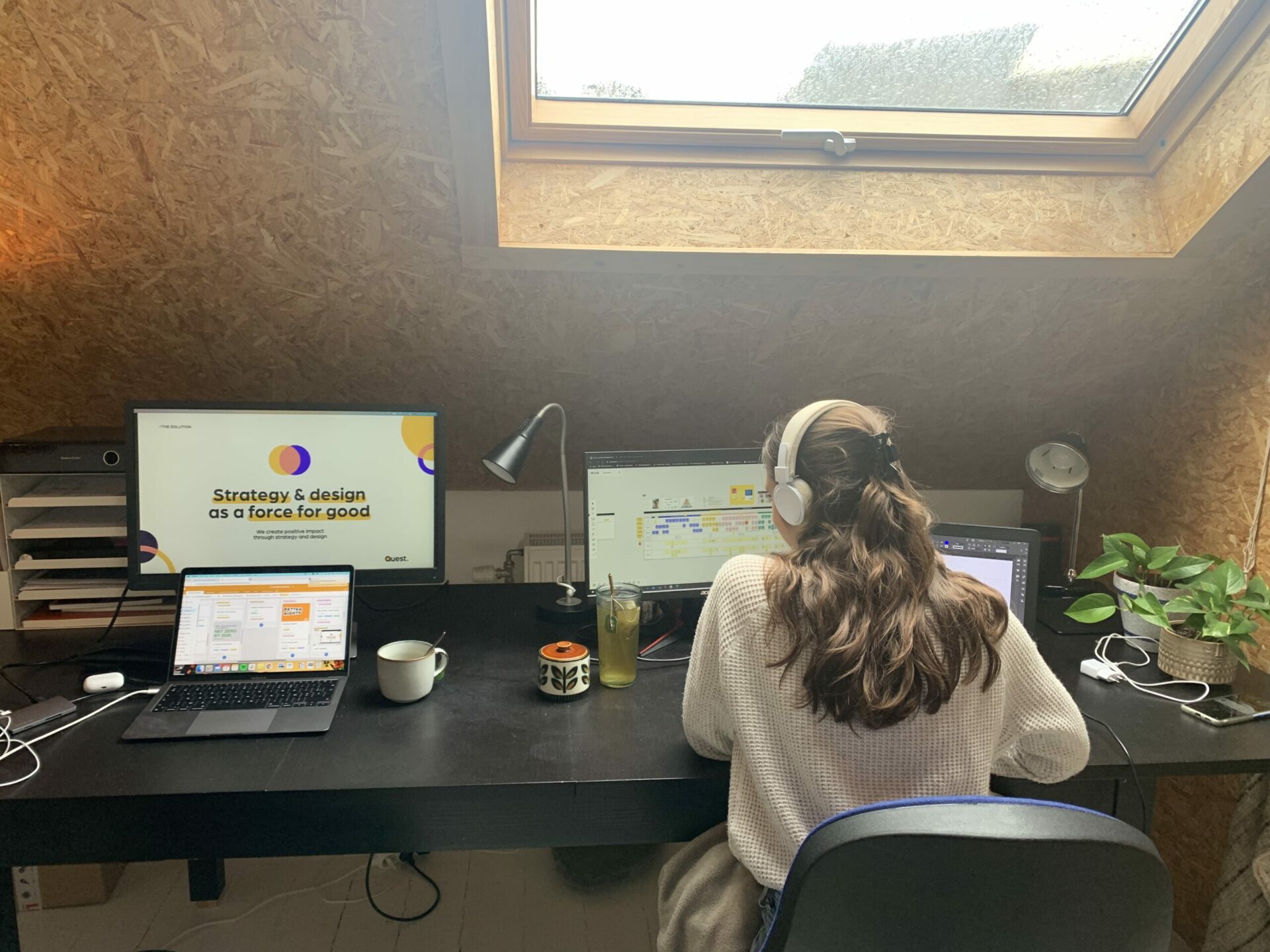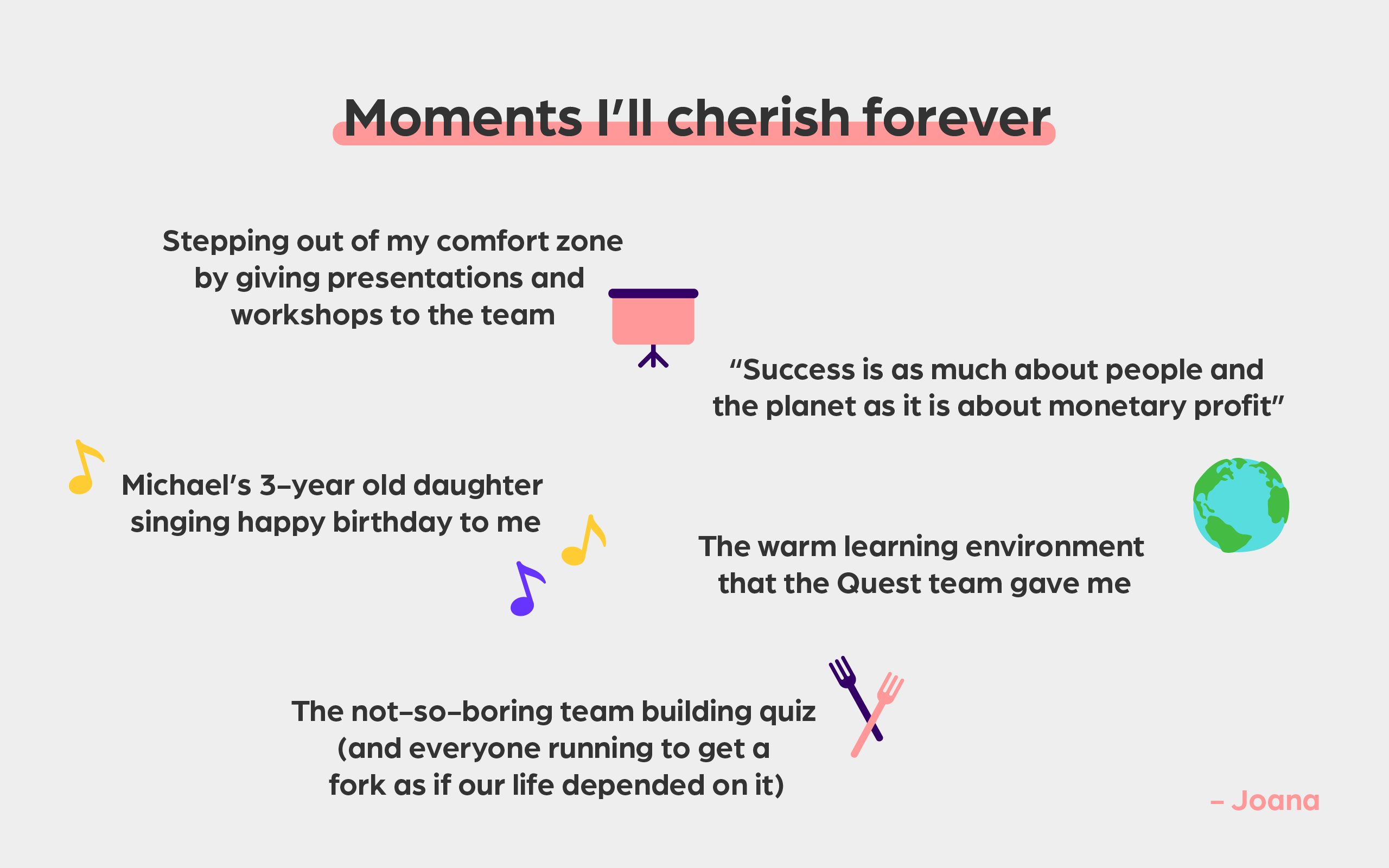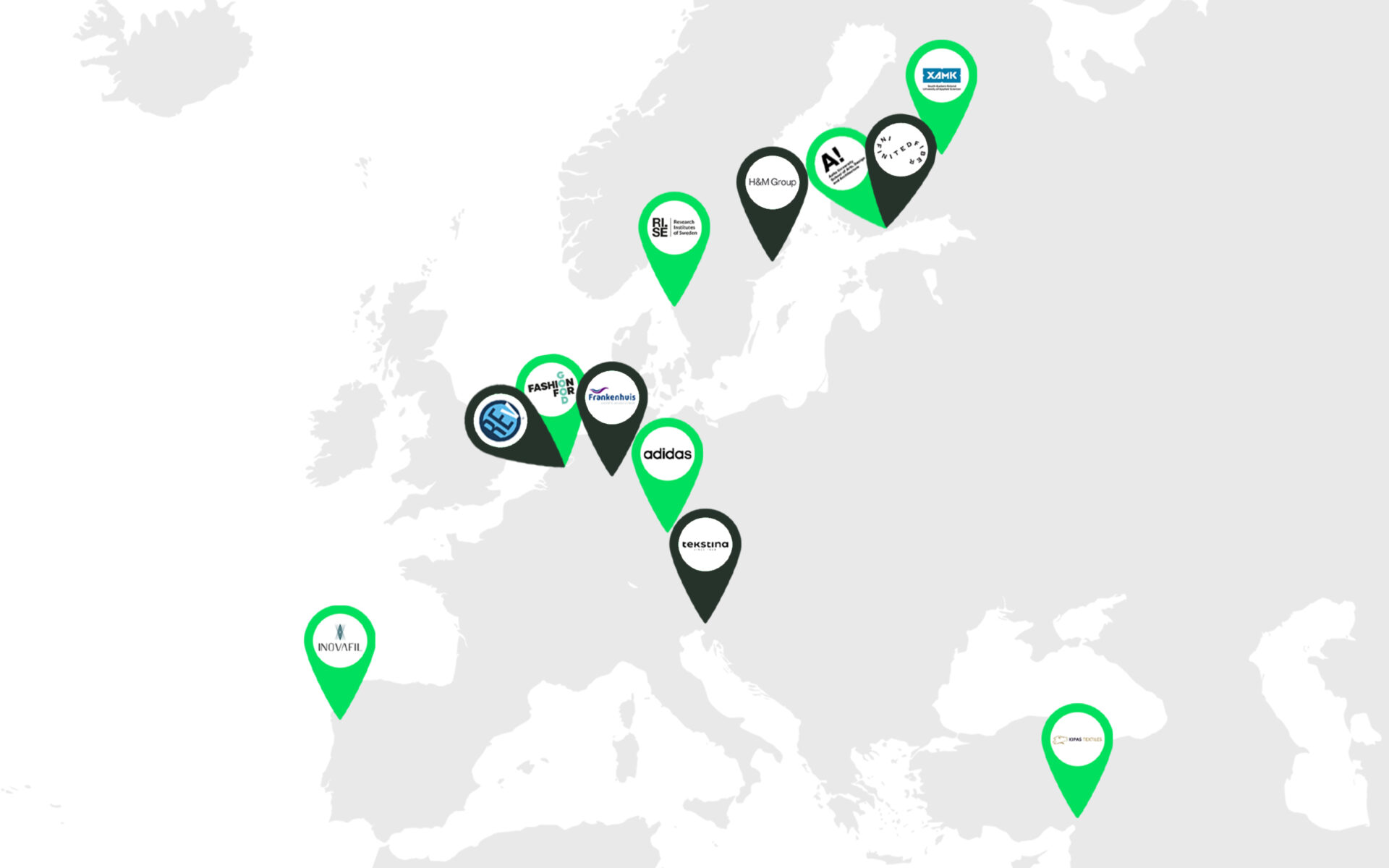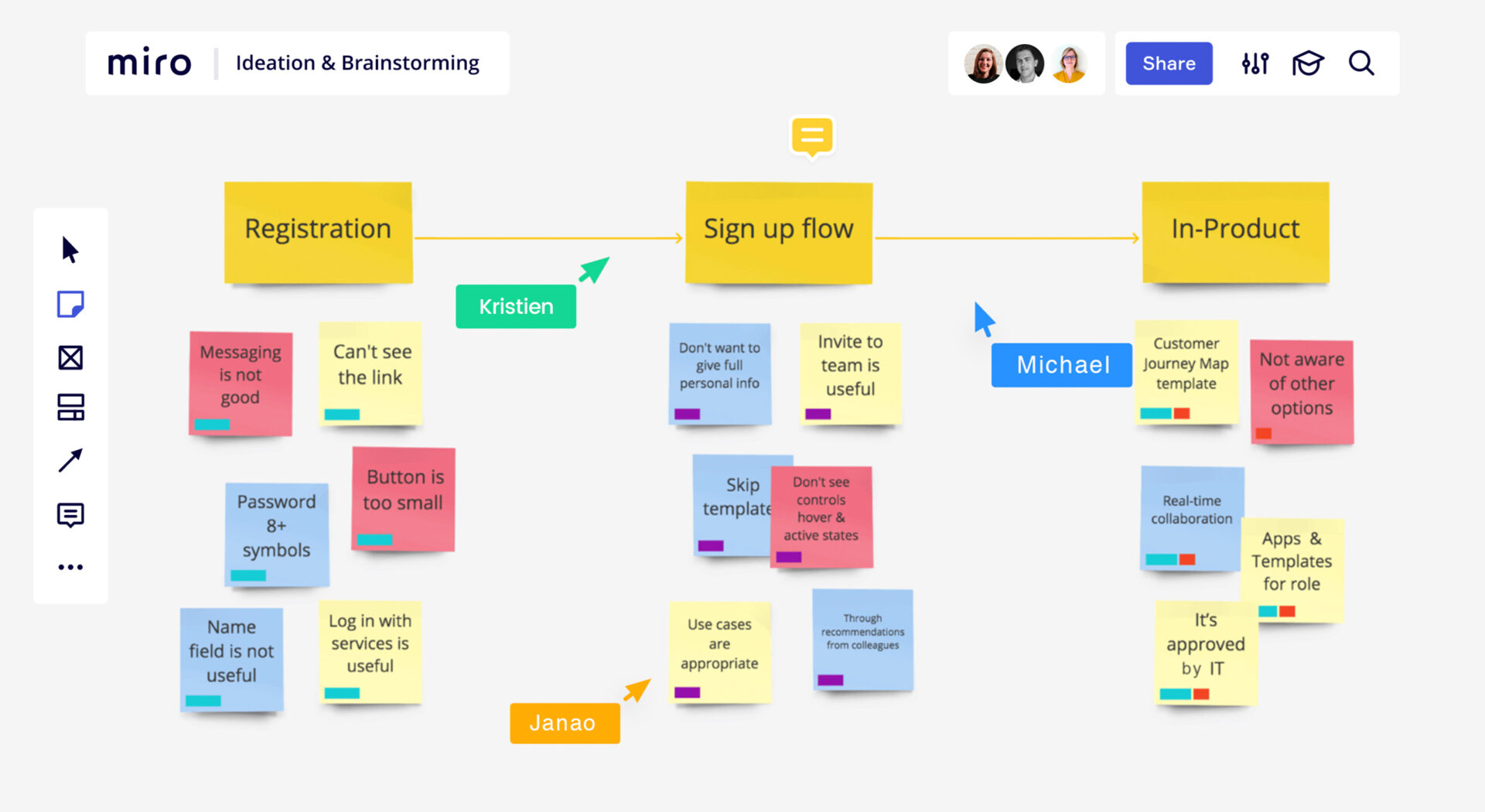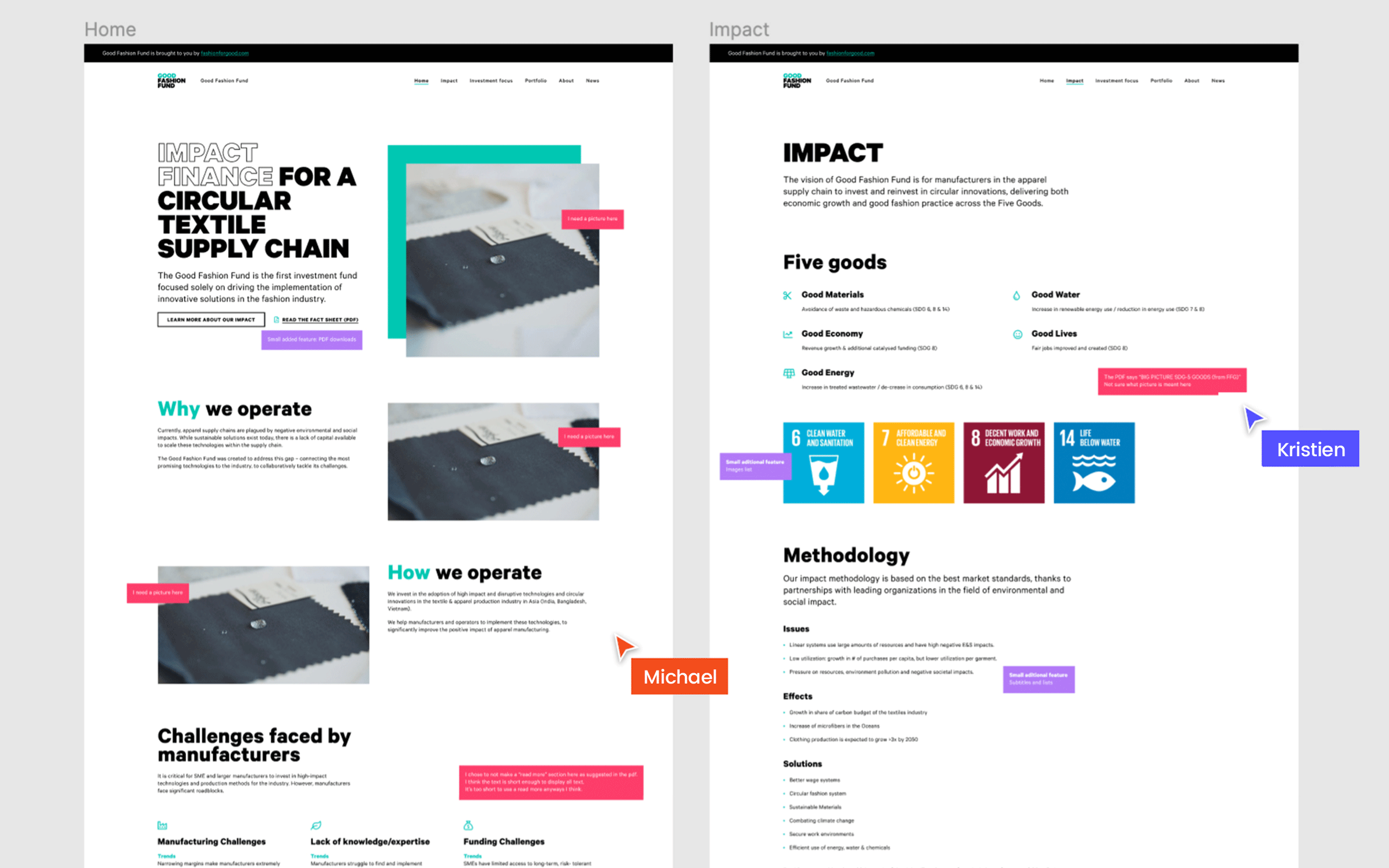Page content
Welcome Philippe!
In today’s world, embracing regenerative food systems is paramount as it fosters practices that rejuvenate the earth, promote biodiversity, and create a healthier, more sustainable relationship between people and the planet. That is why sustainable food has always been one of Quest’s top impact areas.
With a background in food waste, circularity and supply chain management alongside a strong passion for biodiversity, we believe Philippe is the ideal candidate to steer Quest’s initiatives in addressing the urgent environmental, social, and ethical challenges across all areas. As the former Global Impact Manager of Too Good to Go and an active member of the B Corp movement, Philippe knows what it means to radically scale positive impact and cannot wait to do the same for your organization. Let’s give him a warm welcome as we take this opportunity to learn more about his journey!
Can you tell us a bit more about your journey and how you became passionate about sustainability and food sustainability in particular?
Since a young age, I have been in love with nature, whether it was going out for hikes in the mountains, spending time in the forest with friends, or snorkeling in the sea. I have always been fascinated by wildlife and eager to spend as much time outside as possible. As I grew older, I became increasingly aware that those natural spaces were dwindling and facing diverse challenges stemming from the overexploitation of the natural world by humanity. I realized that I needed to do my part in inspiring and empowering those around me, specifically by applying my business background to turn businesses into catalysts of change.
I embarked on a series of projects in the food waste space, advising and consulting organizations, researching various topics in further detail, and communicating about them across events and conferences. Food sustainability became a significant passion of mine, not only due to my love for food but also because of the enormous impact that the food system has on the environment. It instilled in me a strong desire to take action and be the change I want to see in this world.
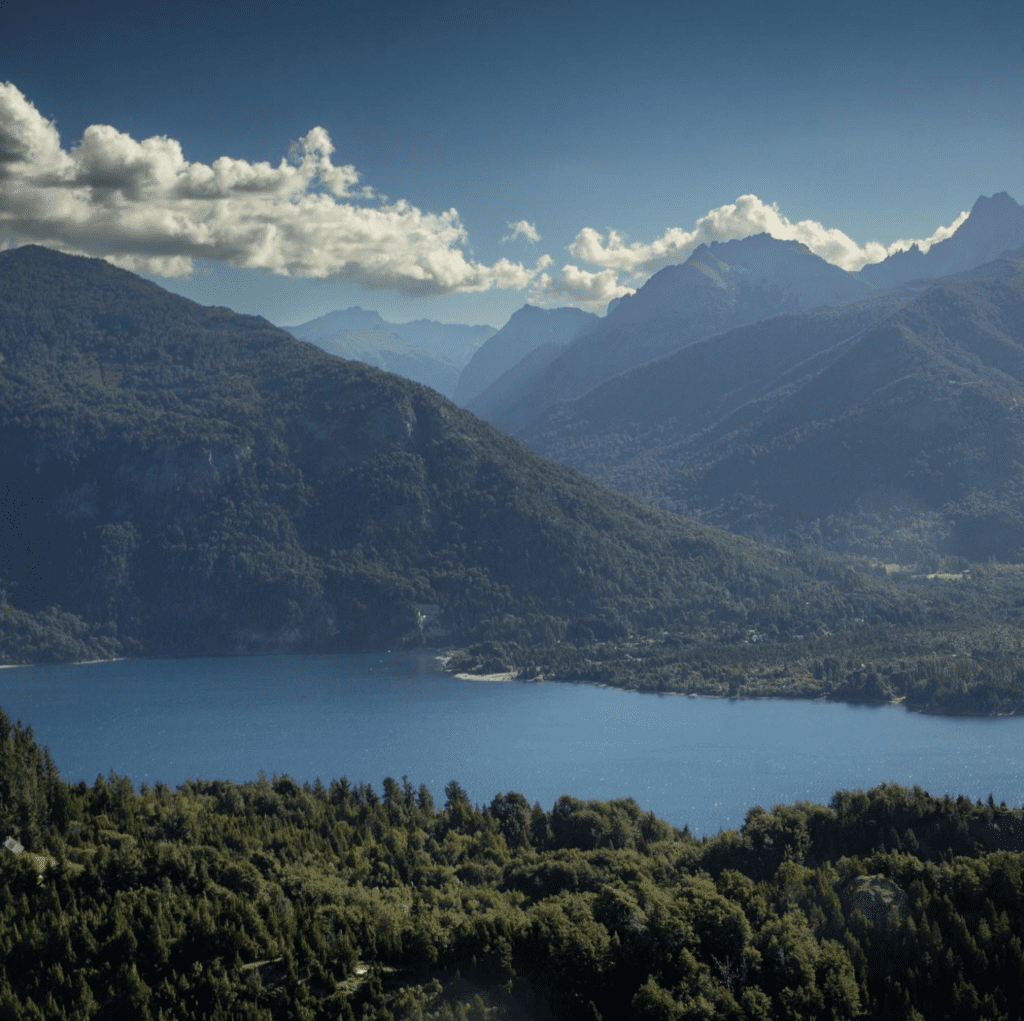
We know you had a lot of other options. What motivated you to join Quest, and what excites you most about your new role?
Since my first discussion with Quest, I have admired the ambition the Impact Studio has regarding driving even more positive impact at scale. Joining them will give me the chance to apply my expertise and knowledge and help Quest steer toward creating even more positive change.
Can you name three things you learned as a Global Impact Manager at Too Good to Go that you would also like to apply at Quest and our amazing clients?
Collaboration
I truly believe in the power of many. It is essential to be fully transparent and open to the challenges one faces while being aware that no person or business is perfect. Instead of thinking solely on an individual basis, it is more critical than ever to consider synergies, interdependencies, and conn ections across the entire organization and supply chain. One person or team alone is not enough; we need everyone on board.
Systemic change
We need a systemic shift that ensures that consumers, and more specifically the individuals behind the business, feel empowered to be part of that change. A business shouldn’t just talk about sustainability or go for the easy, low-hanging fruit, but it needs to embed it in its DNA across shareholders, the management team, and all employees within its operations. Once a business has adopted these new principles, solutions, and processes, it can then become an industry-wide leader that persuades policymakers and consumers to be part of this change.
Triple bottom line
Sustainability should never be seen as a mere checkbox. One always needs to keep in mind that people, profit, and the planet should go hand in hand. Being more sustainable shouldn’t mean that a business will suffer financially. It instead opens up a whole range of new opportunities and ways of doing business. A business becomes purpose-driven. Even if an action might seem small at first, it can quickly galvanize into something bigger and more strategic in the future.
Can you share some insights into your vision for Quest’s impact consulting services?
My vision for Quest is that we can become the go-to partner for clients across sectors who want to embed a regenerative and sustainable business model. We aim to become experts in the different sectors we operate in, solve problems that our clients face in pragmatic and innovative ways, and steer the conversation when it comes to engaging with businesses as a force for good.
You’ve built up massive expertise in food waste reduction, regenerative food systems, circularity and sustainable supply chains. How do you plan to leverage this knowledge at Quest?
The food system is definitely the sector in which I have built most of my experience and expertise, and I hope that this can help many of our clients going forward. That being said, I also envisage applying much of the knowledge I have gained across other sectors after spending many years researching the planetary crisis. With an academic background in Supply Chain Management, I hope to bring forward a new perspective to the team by making us look at all interconnections and interdependencies within an entire system. We are living in a globalized world in which it is no longer enough to look at one’s own operations alone; it is essential to keep in mind the entire supply chain from start to finish.
What are some of the key initiatives or projects you plan to lead in your new role?
As Quest’s sustainability consultant, I will straight away start working closely with our partners and clients on their journey to a more regenerative business model. Services that we will provide include a.o. materiality assessments, risk profiling, impact strategy development, building ESG roadmaps and conducting benchmark and gap analyses with our impact scan. Learn more about Quest Impact Design Studio services here!
How can our clients and partners expect to collaborate with you in your new position?
You can expect an open ear and a sincere desire to help. To advise, guide and consult you on the challenges you face and be a proactive problem-solver who will inspire you to think differently and to go the extra mile in order to scale positive impact.
When will you be satisfied about (y)our achievements at Quest?
To be honest, I don’t think I will ever be fully satisfied as long as the planetary crisis persists. I am sure we will meet extraordinary milestones together with our partners and clients that we should celebrate, but I also feel that there is so much work to be done.
The world is in dire need of shifting toward a regenerative future, and it will not happen overnight. We need all hands on deck.
– Philippe Schuler, Quest’s new Sustainability Consultant

As you dive into this new adventure, what’s the message you’d like to share with our team, clients, and the wider community?
I am extremely excited to get going! I cannot wait to find out more about the challenges and problems each of you faces. I am ready to add value and bring a new perspective to the room wherever I can. That being said, I am far from perfect, and I envision continuing to learn in different ways and from all the people I will get the chance to meet. We are on this journey together, and I am ready to scale your positive impact even further starting today!
